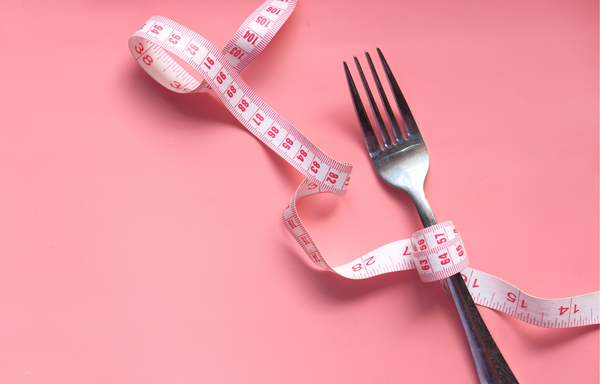

Will a Low Insulin Lifestyle Help Me Lose Weight?
If you have struggled with weight loss despite eating less and exercising more, you are not alone. Many people with PCOS or insulin resistance feel like their bodies are working against them—because, in many ways, they are.
I know this struggle firsthand. For years, I followed every piece of conventional diet advice: cut calories, eat whole grains, exercise more. But no matter what I did, the scale wouldn’t budge. Worse, I felt hungry all the time, exhausted, and completely defeated.
It wasn’t until I shifted my focus away from calories and started paying attention to insulin that things finally started to change. And I am not alone.
In three separate research studies, participants following a Low Insulin Lifestyle lost an average of 18 pounds in just two months—without counting calories or carbs, cutting entire food groups, or feeling deprived. This approach works because it targets the real problem: insulin resistance.
Why Traditional Weight Loss Advice Fails for PCOS and Insulin Resistance
Most weight loss advice is based on the idea that eating fewer calories than you burn will lead to fat loss. While this might work for some people, it completely ignores the role of insulin in fat storage.
When insulin levels are high, the body is in storage mode—meaning fat burning is nearly impossible, no matter how much you cut calories. Even worse, high insulin levels make you feel hungrier, cause cravings for carbs and sugar, and leave you feeling tired and irritable.
If you have PCOS, prediabetes, or any degree of insulin resistance, focusing on insulin is far more effective than just cutting calories.
How a Low Insulin Lifestyle Helps with Weight Loss
Lowering insulin levels shifts the body out of fat-storage mode and into fat-burning mode. Instead of forcing your body to burn more calories by over-exercising or restricting food, this approach allows your metabolism to function the way it was meant to.
Here’s what happens when you focus on insulin first:
- Your hunger levels stabilize. Instead of feeling constantly hungry, you feel satisfied after meals.
- Cravings for sugar and carbs disappear. High insulin levels fuel intense cravings—when insulin drops, those cravings go away.
- Your body starts burning stored fat. When insulin is low, the body is finally able to access and burn fat for energy.
- You feel more energized. Instead of energy crashes and brain fog, steady blood sugar and insulin levels keep you feeling clear-headed and strong.
This is why participants in our research studies lost an average of 18 pounds in just eight weeks. They weren’t restricting calories or over-exercising—they were simply lowering insulin levels and letting their metabolism do what it was designed to do.
What to Expect When You Start
For many people, weight loss with a Low Insulin Lifestyle happens without feeling deprived or hungry. It is not about counting every calorie or spending hours at the gym. It is about choosing foods and habits that support healthy insulin levels.
Some people notice the scale moving right away, while others see non-scale victories first—like better energy, fewer cravings, and improved mood. Over time, as insulin levels drop and the body becomes more sensitive to insulin again, weight loss becomes easier and more sustainable.
How to Get Started
If you are ready to try an insulin-first approach to weight loss, here are the key steps:
1. Eat in a way that keeps insulin low
Instead of focusing on calorie restriction, focus on foods that support insulin sensitivity.
- Prioritize: non-starchy vegetables, lean proteins, healthy fats, nuts, seeds, and whole fruits in moderation.
- Avoid: starchy foods (bread, pasta, rice, beans, potatoes), added sugars, and dairy that contains whey, which spikes insulin.
2. Move in a way that supports insulin sensitivity
Exercise is important, but not in the way you have been told. Long cardio sessions and excessive exercise can actually raise cortisol, which makes insulin resistance worse. Instead, focus on:
- Strength training
- Walking after meals
- Short bursts of movement throughout the day
Even 10 minutes of walking after eating can significantly improve insulin sensitivity.
3. Track the right numbers
Most people track glucose, but if you have insulin resistance, tracking insulin levels is far more important.
Many doctors do not test insulin, which is why I created Lilli At-Home Insulin Testing Kits—so you can check your levels and see real progress as you follow a Low Insulin Lifestyle. Testing fasting insulin gives you clear, science-backed insight into how your body is responding.






















